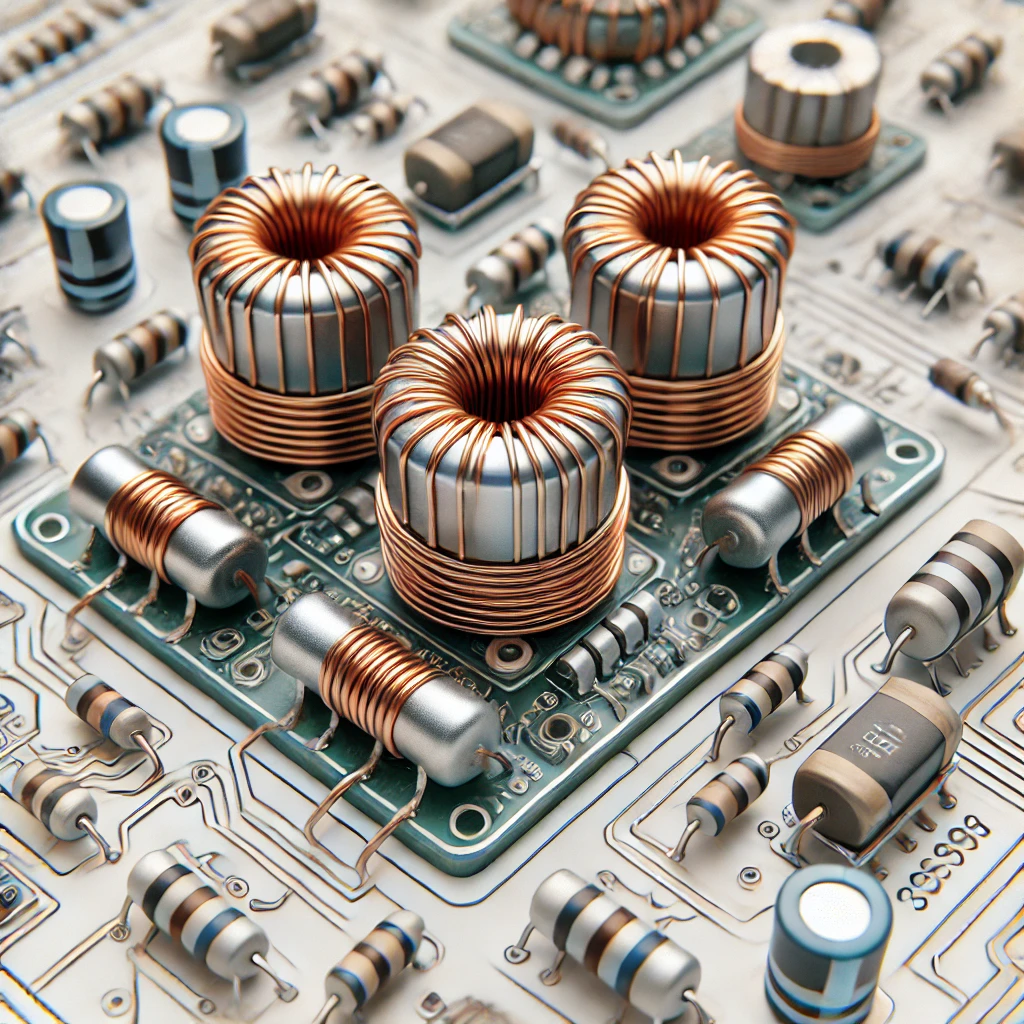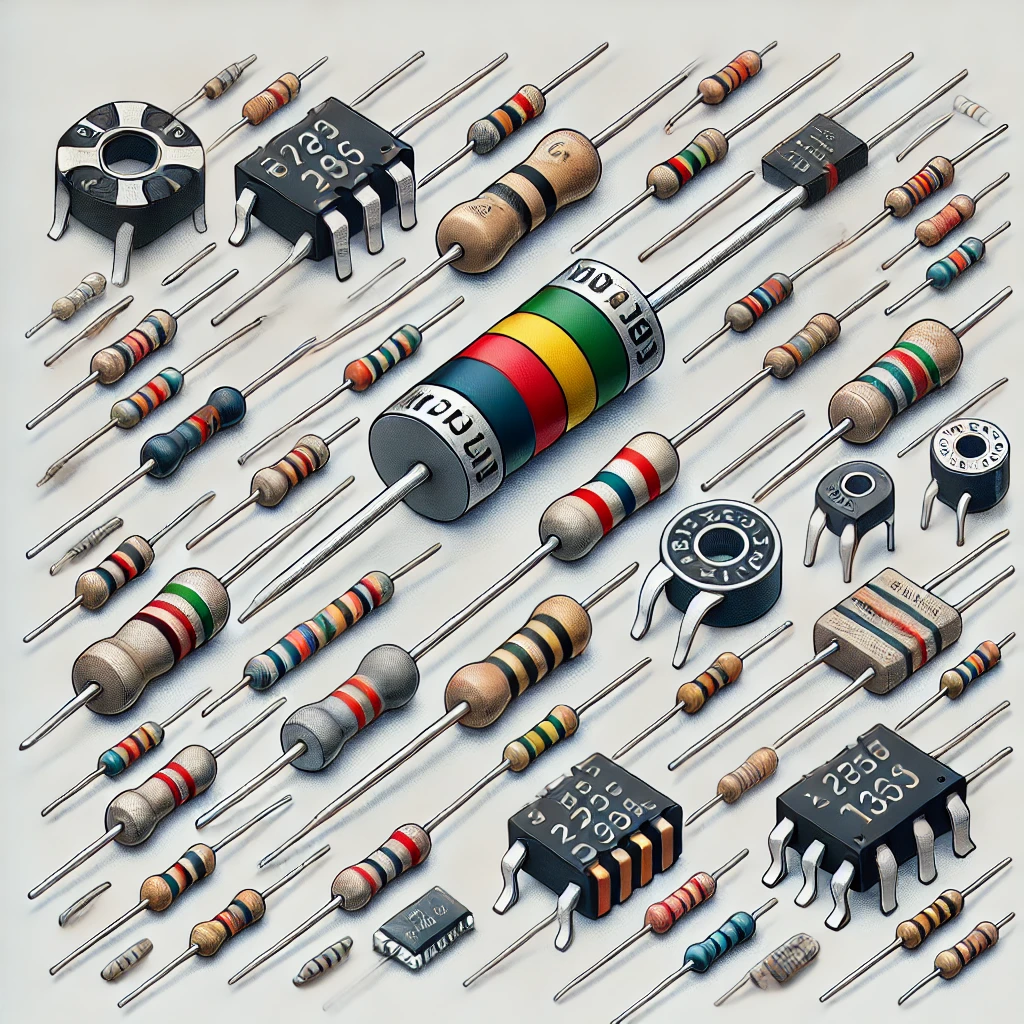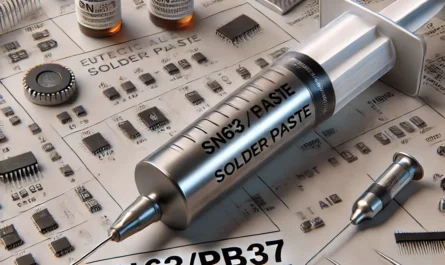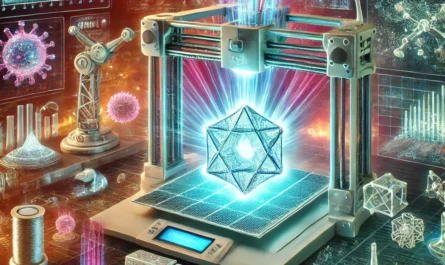Inductors are used in a wide range of electrical and electronic systems. Here are more practical examples of how they are applied in real-world circuits:
1️⃣ Inductors in Power Supplies (Buck/Boost Converters)
📌 Application: DC-DC voltage conversion in mobile chargers, power banks, and solar inverters.
📌 How It Works:
- In a buck converter (step-down), the inductor stores energy when the switch is ON and releases it when OFF, smoothing the current.
- In a boost converter (step-up), the inductor boosts voltage by storing energy and then releasing it to the load at a higher voltage.
✅ Example Circuit (Buck Converter)
Vin (12V) --- [Switch (MOSFET)] --- [Inductor] --- [Diode] --- Vout (5V)
|
[Capacitor]
|
GND
Where:
- The MOSFET acts as a switch.
- The inductor stores and releases energy to regulate voltage.
- The capacitor smooths the output voltage.
2️⃣ Inductors in Wireless Charging
📌 Application: Used in smartphones, electric toothbrushes, and EV chargers.
📌 How It Works:
- Two coils (inductors) are used: one in the charging pad (transmitter) and one in the device (receiver).
- Magnetic induction transfers energy between the coils without physical contact.
✅ Example Circuit:
(AC Power) → [Oscillator] → [Transmitter Coil] )) (( [Receiver Coil] → [Rectifier] → (Battery)
- Oscillator generates an AC current.
- Transmitter Coil creates a magnetic field.
- Receiver Coil picks up the energy and converts it back to DC.
3️⃣ Inductors in Audio Systems (Crossovers)
📌 Application: Used in speaker systems to separate high and low frequencies.
📌 How It Works:
- Inductors block high frequencies while allowing low frequencies to pass.
- They work with capacitors to form crossovers, which direct sound to woofers (low frequencies) or tweeters (high frequencies).
✅ Example Circuit (Low-Pass Filter for a Woofer)
Audio Signal ---> [Inductor] ---> Woofer (Low-Frequency Speaker)
- The inductor blocks high frequencies, so only bass sounds reach the woofer.
4️⃣ Inductors in Transformers
📌 Application: Used in power transmission, adapters, and electrical substations.
📌 How It Works:
- Transformers consist of two inductors (primary & secondary windings).
- By varying the number of windings, transformers can step up or step down voltage.
✅ Example: Step-Down Transformer (220V AC to 12V AC)
220V AC ---> [Primary Coil (More Turns)] ---> Magnetic Core ---> [Secondary Coil (Fewer Turns)] ---> 12V AC
- The transformer reduces voltage while maintaining power efficiency.
5️⃣ Inductors in RFID (Radio-Frequency Identification)
📌 Application: Used in contactless payment cards, keyless entry systems, and inventory tracking.
📌 How It Works:
- An RFID reader generates a high-frequency magnetic field using an inductor.
- An RFID tag (with a small coil and chip) picks up the energy, powering the chip to send data.
✅ Example System:
[RFID Reader Coil] )) (( [RFID Tag Coil] → [Chip Sends Data] → [Reader Receives Signal]
- The inductor in the reader wirelessly powers the tag, allowing it to send information.
6️⃣ Inductors in Sensors (Inductive Proximity Sensors)
📌 Application: Used in metal detectors, car parking sensors, and automation.
📌 How It Works:
- When a metal object enters the magnetic field of an inductor, the field changes.
- This change is detected and used to trigger an action (e.g., opening a door).
✅ Example Circuit (Proximity Sensor)
[Oscillator] → [Inductor Coil] → [Metal Object Detected] → [Signal Output]
- The inductor generates a magnetic field that changes when metal is near.
💡 Summary of Applications
| Application | Function of Inductor |
|---|---|
| Power Supplies (DC-DC Converters) | Smooths and regulates voltage |
| Wireless Charging | Transfers energy via induction |
| Audio Crossovers | Filters sound frequencies |
| Transformers | Steps up/down voltage |
| RFID Systems | Powers tags wirelessly |
| Inductive Sensors | Detects metal objects |







